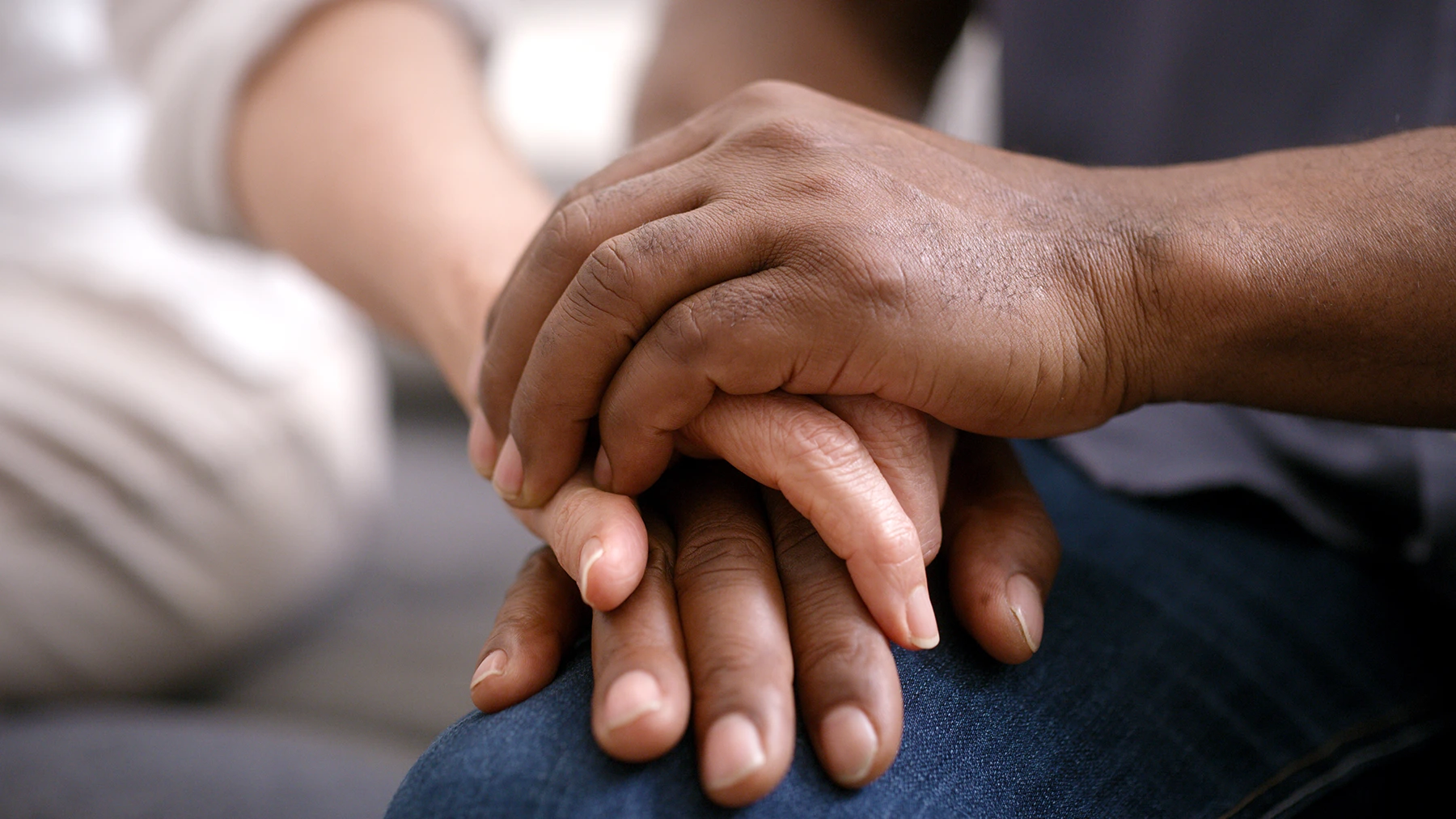How to Find Intimacy After Breast Cancer

If you’re a breast cancer survivor, what does intimacy look like for you? Is it a shared meal, a conversation, a hug, or something else? Intimacy can take many shapes, but at its core, it is about feeling closeness with others and, perhaps most importantly, with yourself.
Depending on the breast cancer treatment, survivors can be left with physical symptoms like vaginal atrophy, fatigue, painful sex, reduced libido and hair loss. Post-mastectomy, survivors can have scarring and disfigurement. Mentally, survivors may experience a sense of lost identity, negative self-image and difficulty connecting with others. From physical changes in the body to how you perceive yourself, these symptoms are no small thing and can significantly reduce your quality of life.
Finding a kind of intimacy that feels normal may continue to change as you progress from active treatment to post-treatment and experience different symptoms. There’s no one-size-fits-all approach to intimacy; however, opening up the dialogue with your care team can allow you to understand what can happen to your body and mind.
It can feel awkward to discuss sexual health and intimacy challenges with a doctor.
But they can help navigate sexual health problems and mitigate symptoms where possible.
“Physical and emotional symptoms go hand-in-hand,” says Lara Traeger, Ph.D., a clinical psychologist at Sylvester Comprehensive Cancer Center, part of the University of Miami Miller School of Medicine. “You may not realize those biological contributors are causing emotional stress, too.”
This emotional stress can bleed into your relationships, particularly with caregivers who are partners to survivors.
“In my conversations with caregivers, there is a lot of concern about sexual health and intimacy with the cancer survivor,” says Dr. Traeger, associate professor of psychology at the Miller School. “They don’t want to burden the patient with their worries about their sex life. The caregiver understands that the patient is already going through enough without adding their own sense of disconnection or loneliness. But not talking about it can lead to more tension.”
She adds that, in some cases, the lack of intimacy can exacerbate problems in the relationship that were already present before the diagnosis. To be clear, no one should ever feel pressured to be intimate. If there are negative feelings about being close to a partner, Dr. Traeger recommends that survivors be open and honest.
“Even in the strongest of relationships, a cancer diagnosis can change the dynamic, but it comes back to the idea of normalizing open communication,” says Dr. Traeger.
Survivors may feel like intimacy is not important enough to bring up to their care team, even though it’s affecting their quality of life.
Dr. Traeger frames it this way: if you don’t bring up something bothering you, like intimacy, others may not think it’s a worthy topic. This applies to your care team and any partner you may have. Avoiding the problem can add more anxiety and pressure to a survivor already affected by stress, fatigue and other factors.
As psychologists, “we try to teach patients that the more you avoid in the long term, the harder facing the problem becomes. So, going home and having these conversations with your partner will help you face that stressful topic.”
“Going through cancer care is challenging,” Dr. Traeger says. “It can be disfiguring. It can change your bodily function. You might not know your body anymore. All of that can be hard to manage in a relationship, and it can be hard to manage alone.”
But know that you’re not alone in concerns about sexual health after breast cancer. Research shows a significant percentage of survivors reporting fears about intimacy, and according to Dr. Traeger, on par with fatigue, it is one of the most common issues survivors face.
“Intimacy issues are really front and center for most people,” says Dr. Traeger.
It’s important to clarify that when thinking about intimacy, it doesn’t always mean physical intimacy. Connecting with yourself and others is feeling connected and close. Dr. Traeger says to take it step-by-step when considering ways to increase emotional intimacy. Make time to sit and have a conversation about a specific topic. Hold hands and just be with each other. It may sound simple, but these seemingly small actions may not have happened in the past.
You can do something to improve emotional intimacy — and it can make a huge difference.
– Lara Traeger, Ph.D.
Other factors that affect a breast cancer survivor’s intimacy include anxiety, depression, and stress — all of which are more common in survivors than in the general population. She recommends that breast cancer survivors take time to address those issues, especially if there is a history of trauma before cancer.
“It can feel isolating, but you don’t have to work through everything on your own,” Dr. Traeger says.
Your identity is vital in establishing intimacy, including how your body adapts to treatment and your relationship with yourself. Ask yourself, “How do I feel today?” and let that thought experiment guide you.
If your sense of sexual health includes things like painful intercourse, difficulty connecting with others, hair loss, or other physical or emotional symptoms that affect your intimacy, don’t ignore them. Talk to your doctor, a therapist and partner. Your body may write the rules of how it reacts to treatment. But it’s possible to get your mind and body in harmony and have the intimacy you desire if you keep an open door of communication.
Cara Tremols is a contributor to Sylvester Comprehensive Cancer Center.
Tags: breast cancer care miami, cancer care in Miami, Dr. Lara Traeger, human connection, survivorship wellness, Sylvester Comprehensive Cancer Center
